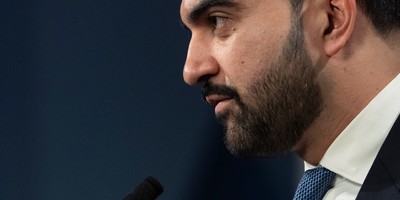In the first half of this analysis, I showed a number of ways the press this year has turned into a flailing, foundering mess. In this follow-up, I want to look at the results of their actions this year. In my daily media column, one of the categories I use to illustrate the effort to push agendas and manipulate narratives is News Avoidance Syndrome, where news items that run counter to a preferred storyline are conveniently not covered at all. Likewise, there is a reality we have seen throughout 2023 that the press would rather you not contemplate.
Repeatedly we have seen that not only have some of the collective efforts in the press to shape public opinion fail to find success, but they have also created the opposite effect; huge benefits for the targeted entity. Attempts to demean or cancel an item in the culture have instead led to actual success. Of course, the media are loathe to report on these turnabouts, because it would be an admitting they lost traction with the public.
The root of this began four years ago. That was when Gillette put out a lengthy two-minute ad - what the company called a film - that insulted its customer base. Gillette was addressing what it deemed to be toxic masculinity and coached men to stop being so damned masculine. In the quarters that followed, while the parent company Proctor & Gamble was seeing mostly increased sales, the Gillette division was tanking to the tune of billions of dollars in losses. The CEO had to admit to this, all while claiming the ad was still worth running.
We saw this also play out on the breakfast aisle. For another example I had to dig deep into the financials of PepsiCo and Quaker Oats to find the results after another woke corporate decision. In 2020 it was announced that the Aunt Jemima brand would be removed to appease the Black Lives Matter movement. Following the move that division of the company experienced significant losses for over a year and a half of quarterly reports.
Recommended
The significance is that the media never followed up on these vaunted corporate decisions. When announced the press cheered them on, covering the Gillette ad and the pancake spokeswoman's cancelation with excitement. Yet there was no significant coverage of the disastrous results. That would disrupt these social activist moves the press loves to tout, and it has led to disaster this year.
Because these marketplace fiascos were not properly reported on, and thus studied, other companies continued to rush headlong into the minefield of woke marketing. The media was encouraging these decisions energetically while tossing barbs at anyone who spoke out against the corporate agitprop. But things have turned a corner this year, as consumers have reached a breaking point and now the press is facing a stark reality they also do not want to report on – few people are buying the bullcrap they are trying to sell. Literally
The biggest story in this regard, obviously, has been the demolition of the Bud Light brand. For far too long Dylan Mulvaney has been a media darling, with the press foisting that name to growing agitation. When Anheuser-Busch joined in the fray that became the catalyst. The brewer has seen a remarkable exodus of customers, something that far exceeds a basic boycott. The brand has literally lost a generation of customers, something that will take years to replenish. Other brewers have been reaping the benefits of drinkers seeking out alternatives.
This reflects directly on the press. The media initially rushed to Mulvaney’s defense and lashed out at vocal opponents, calling them transphobic and intolerant, but this only hardened the reaction. It has been four months of collapsing sales for the brewer, and the press has been incapable of rebranding this as a hate-based reaction.
When Target Stores put out a collection of clothing for transgendered individuals, including a children’s line, it faced a backlash that the media attempted to stave off. While attempting to say it was a small vocal minority of homophobic conservatives the reality seen was this was a significant consumer pushback. Target buckled and moved the displays to the back of stores because the company saw the reaction was real and widespread.
The year began with a hysterical dose of media activism regarding the release of the Harry Potter-based video game “Hogwarts Legacy”. Because of the controversy surrounding J.K. Rowling, the creator of the entire Potter universe, (organized Quidditch leagues actually renamed the sport due to her alleged intolerance), there were months of press opposition to the game. Boycotts were called for and some gaming outlets pledged to not review “Legacy”. This media opposition led to the game breaking numerous sales records.
On July 4 the small independent film “Sound Of Freedom” was released, and with it was also released a Pandora’s box of media bile. A wide array of outlets echoed each other, deriding the film as a Q-anon fantasy that appeals to what they perceived as the conspiracy kook community. That the film addressed the very real issue of child sex trafficking and was based not on a conspiracy but on a real hero, and his life battling this horror, did little to suppress this idiotic reaction. The press outrage has led to the film becoming a smash hit this summer, expected to earn more money than “Indiana Jones 5”, “Transformers”, and “Mission Impossible”.
For the past few weeks, there was a furor over country singer Jason Aldean’s single “Try That In A Small Town”. The hysterical charges of racism and non-existent calls for violence in the song are now well known. But the press that heard words not in the lyrics also managed to not see the result of their histrionics. After attempting to cancel him, Aldean’s song rose to #1 on the national singles chart.
These are realities the press does not want to allude to, at all. This string of marketplace success stories defies the prevailing narratives that were applied to them, and acknowledging these results would mean attesting to the diminished import the media complex wields on the populace. There are signs this year that we do not need to buckle. The perception that the press controls the accepted dialogue is a mirage, and the results point to more strength in the number of consumers.
























Join the conversation as a VIP Member